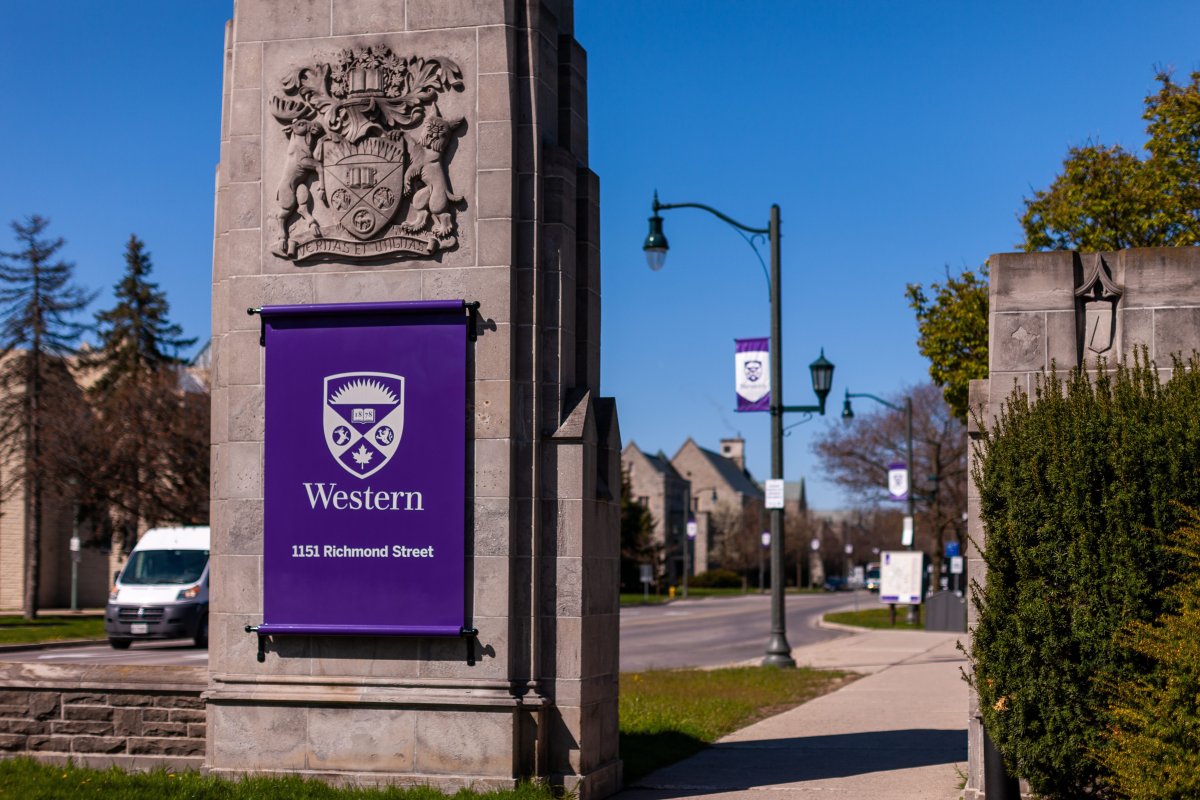In an example of the wide-reaching and growing impacts of artificial intelligence (AI) worldwide, Western University has created a senior executive role dedicated to overseeing a university-wide AI strategy.

The role also positions Western to claim that it is the first university in Canada to have a chief AI officer among its senior executives. And it may not be the last.
“I want colleagues,” laughed Mark Daley, who will begin his five-year term on Oct. 15.
He imagines some institutions may decide to create a new position, or add management of AI matters to existing duties, he said.
“For some institutions, it makes sense to give this portfolio to an existing executive. And each will have to find its own way.”
Currently, Daley serves as the chief digital officer, leading Western’s technology services. He has also served as vice-president of research at the Canadian Institute for Advanced Research. He said that currently there’s “a huge variety in terms of how much people are already adopting AI.”
“But for most of us, the changes of the last two years, and really the last year, in particular, have come so fast that, you know, a lot of people are … thinking, ‘Geez, I need some help to understand how to make the best use of this and how to use this ethically.’ And so I think a huge part of my role is assisting others to be more effective in what they already do.”
President Alan Shepard said Daley is “uniquely qualified” for the role, which the university hopes will “help propel Western to the forefront of AI research and application.”
“With his extensive background in computer science and neuroscience, and deep expertise in both neural computation and academic administration, Mark will help Western navigate a rapidly evolving digital era, guiding our university’s efforts in the ethical and responsible development and deployment of AI.”
Marcel O’Gorman, professor and university research chair at the University of Waterloo and director of the Critical Media Lab, said he believes Western is “getting it right” with the creation of the role and the appointment of Daley.
“All universities in Canada have some kind of AI institute or they are affiliated with one. But this appointment is slightly different because it puts a human face on how a university is dealing with the changes wrought by AI,” he said.
“The appointment goes beyond ‘AI innovation and entrepreneurship’ to consider social and cultural consequences.”
- Premier Moe responds to Trudeau’s ‘good luck with that’ comment
- Drumheller hoping to break record for ‘largest gathering of people dressed as dinosaurs’
- As Canada’s tax deadline nears, what happens if you don’t file your return?
- Planning a summer trip to Quebec’s Îles-de-la-Madeleine? You’ll have to pay up
O’Gorman said Daley’s comments suggest he will champion “a truly interdisciplinary approach” that involves listening to everyone on campus, across disciplines, which “can help ensure that economic zeal around AI does not trump social well-being.” As well, Daley appears to be “thinking globally about AI” which is important in promoting fair access and combatting predatory AI developers.
While Daley’s focus will be internal, he said that part of the role will see him representing Western on a larger scale and that he’s already begun conversations “with colleagues around the world.”
“I personally believe this technology is societally transformative, and I feel a huge amount of agency right now to help make sure that transformation is the most positive thing it can be.”
Daley described his approach to AI as one of “optimism, but tempered with a sense of moral obligation.” He says it’s already made parts of his day better.
“I still have to oversee it. I still have to take accountability for what’s produced, but it gives me an opportunity to free up time to do the things that I really want to be doing, like thinking big ideas and less copy editing,” he explained, stressing that the generative AI currently available is “the worst we’re ever going to work with for the rest of our lives.”
“It’s transformative in the sense that certain types of intellectual labour that we thought weren’t automatable all of a sudden are automatable.”
While Daley is optimistic, the exponential development of the tool has raised concerns about privacy, bias, and ethics worldwide.
As part of an article on the City of London’s use of AI in its homelessness response earlier this year, the Office of the Information and Privacy Commissioner of Ontario and the Ontario Human Rights Commission noted in a joint email to Global News that AI technologies “often rely on personal information or de-identified data and it is imperative that this information be lawfully collected and properly protected.”
It is also important that Ontarians are protected from “unjustifiable or unnecessary surveillance,” they added. The two also pointed to the potential for biases in the technology and lack of accountability or transparency as additional risks.
Last June, the federal government tabled Bill C-27, or the Digital Charter Implementation Act, 2022. Innovation, Science and Economic Development Canada said the legislation aims to “create new rules for the responsible development and deployment of artificial intelligence (AI) systems.” However, the bill is aimed at the private sector and the earliest date that legislation could come into effect is 2025.
Artificial intelligence has also come under scrutiny in the entertainment industry as one of the major issues at play in the Hollywood writers strike as well as in concerns surrounding the use of AI in music.
“Daley is in the hotseat,” O’Gorman said. “Can he remain true to his promise of providing responsible AI leadership rather than sticking to an economic or scientific agenda?”
“I certainly hope so. People will be watching.”





Comments